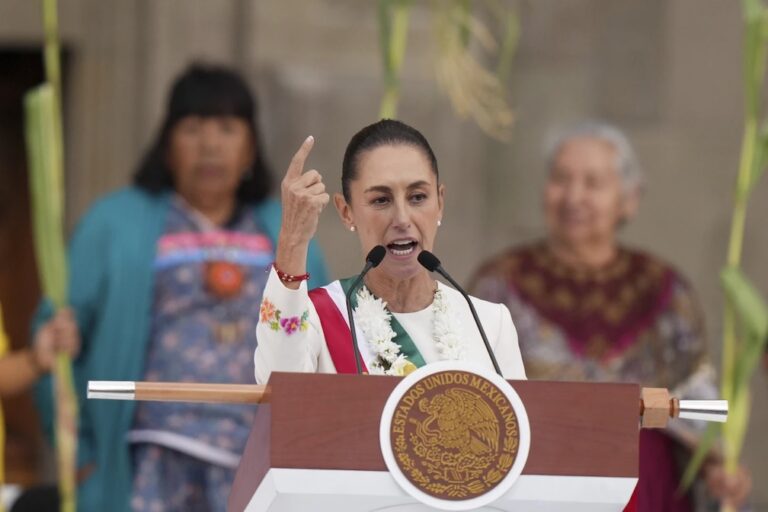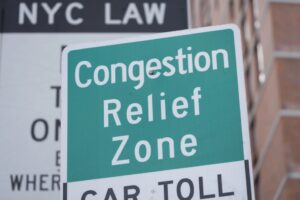MEXICO CITY — Mexican President Claudia Sheinbaum said Thursday, Nov. 28, she is confident that a tariff war with the United States can be averted.
But her statement — the day after she held a phone call with U.S. President-elect Donald Trump — did not make clear who had offered what.
“There will be no potential tariff war,” Sheinbaum said flatly when asked about the issue at her daily morning news briefing.
On Wednesday, Trump wrote that Sheinbaum had agreed to stop unauthorized migration across the border into the United States. She wrote on her social media accounts the same day that “migrants and caravans are taken care of before they reach the border.”
But whether that constituted a promise, a pledge or a simple statement of reality remains unclear. In recent years, migrants who have been unable to obtain permission to cross Mexico have joined together in caravans to walk or hitchhike north toward the U.S. border, seeking safety in numbers.
In fact, apart from the first caravans in 2018 and 2019 — which were provided buses to ride part of the way north — no caravan has ever reached the border walking or hitchhiking in any cohesive way.
For years, migrant caravans have often been blocked, harassed or prevented from hitching rides by Mexican police and migration agents. They have also frequently been rounded up or returned to areas near the Guatemalan border. So, Sheinbaum’s statement appears to reflect a reality that has been true for some time.
U.S. President Joe Biden on Thursday said he hoped Trump would rethink his plan to impose tariffs on Mexico and Canada, saying it could “screw up” relationships with close allies.
“I hope he rethinks it. I think it’s a counterproductive thing to do,” he told reporters in Nantucket, Massachusetts.
Trump had earlier threatened to impose 25% tariffs on imports from Mexico and Canada until those countries satisfactorily stop illegal immigration and the flow of illegal drugs such as fentanyl into the United States. He also said Chinese imports would face additional tariffs of 10% until Beijing cracks down on the production of materials used in making fentanyl.
The Associated Press is an independent global news organization dedicated to factual reporting. Founded in 1846, AP today remains the most trusted source of fast, accurate, unbiased news in all formats and the essential provider of the technology and services vital to the news business. The Trucker Media Group is subscriber of The Associated Press has been granted the license to use this content on TheTrucker.com and The Trucker newspaper in accordance with its Content License Agreement with The Associated Press.








